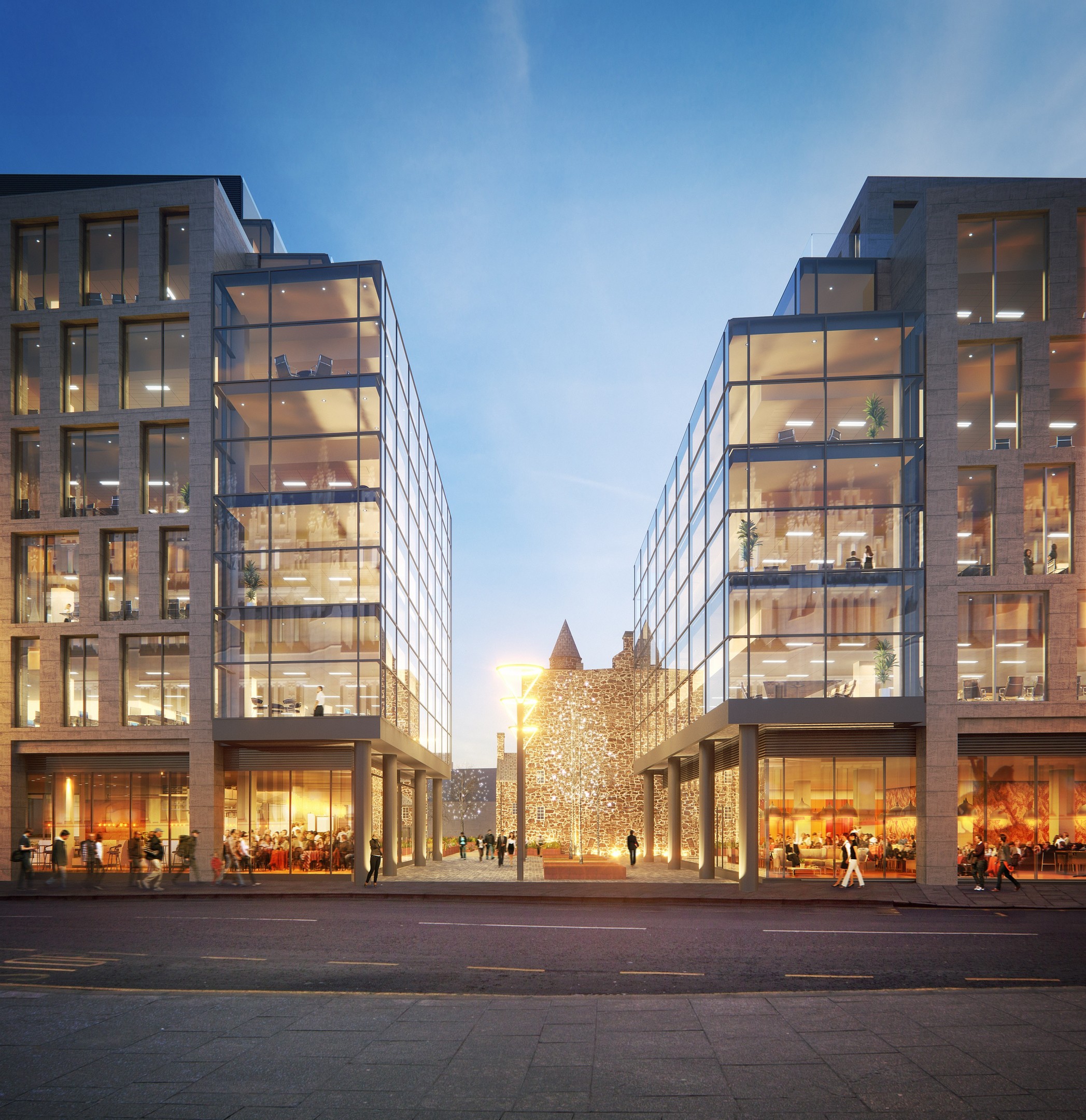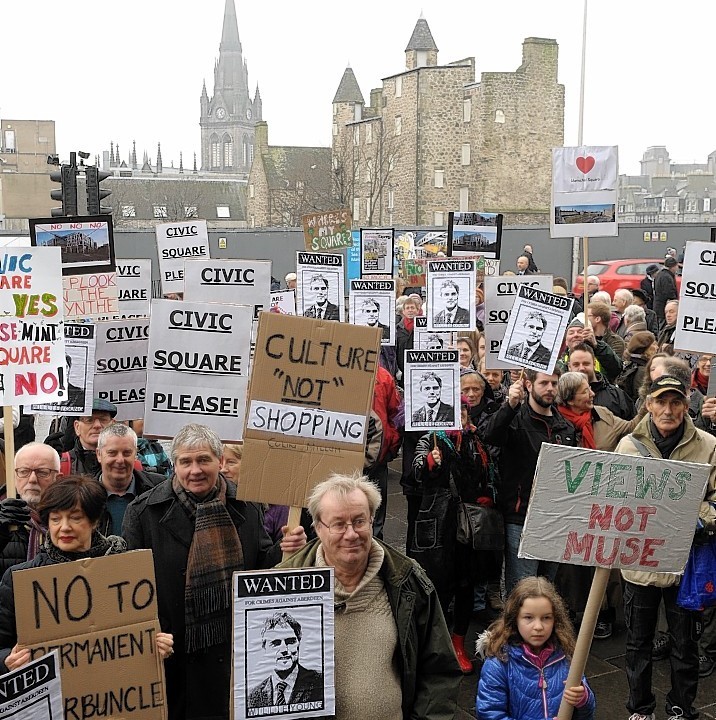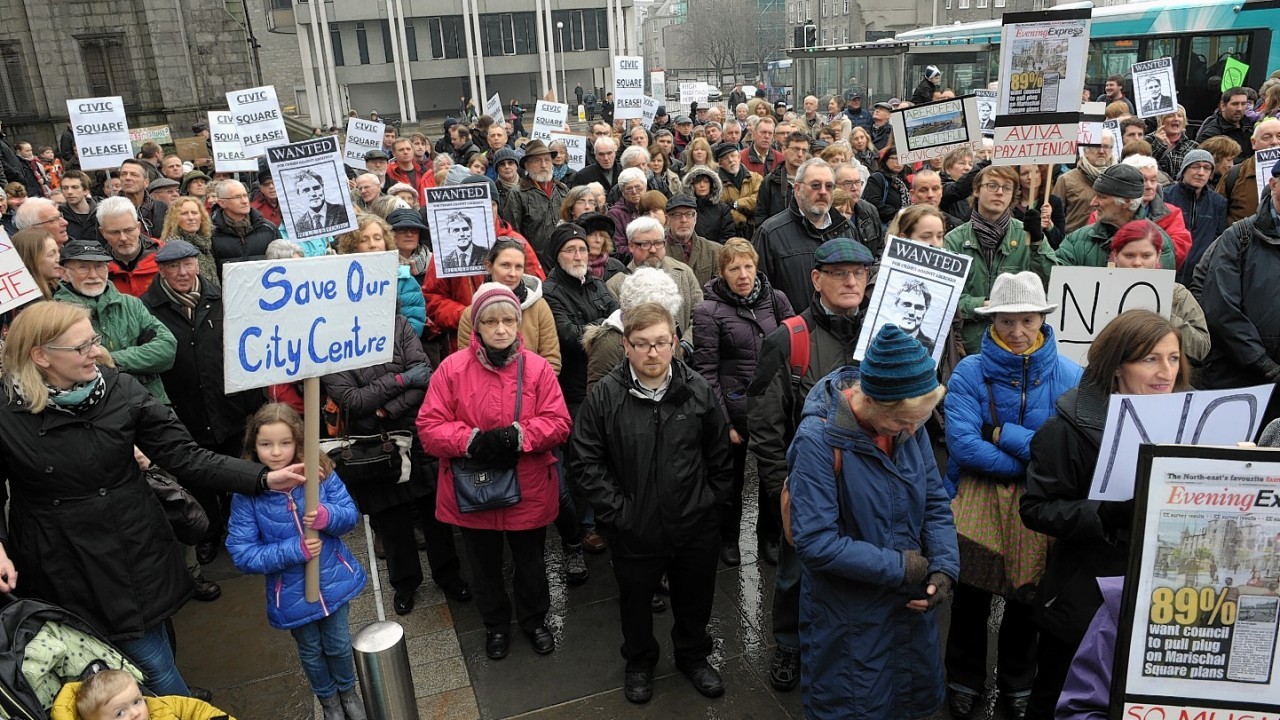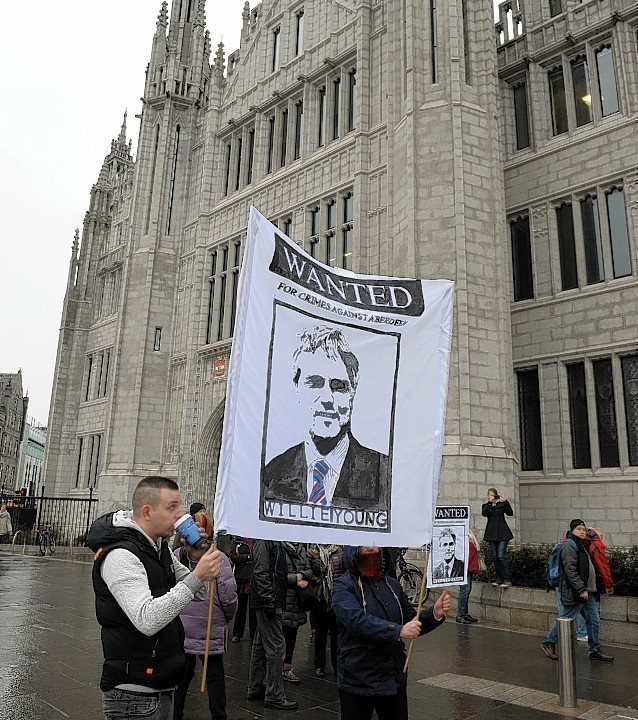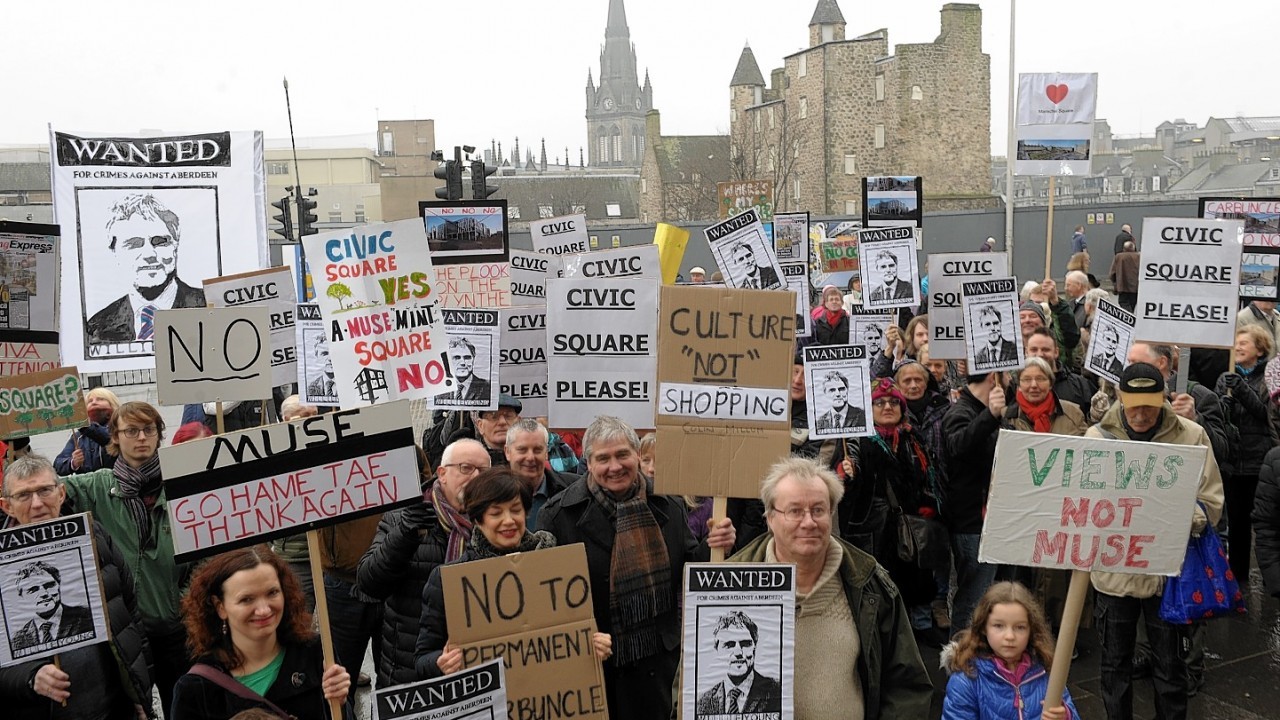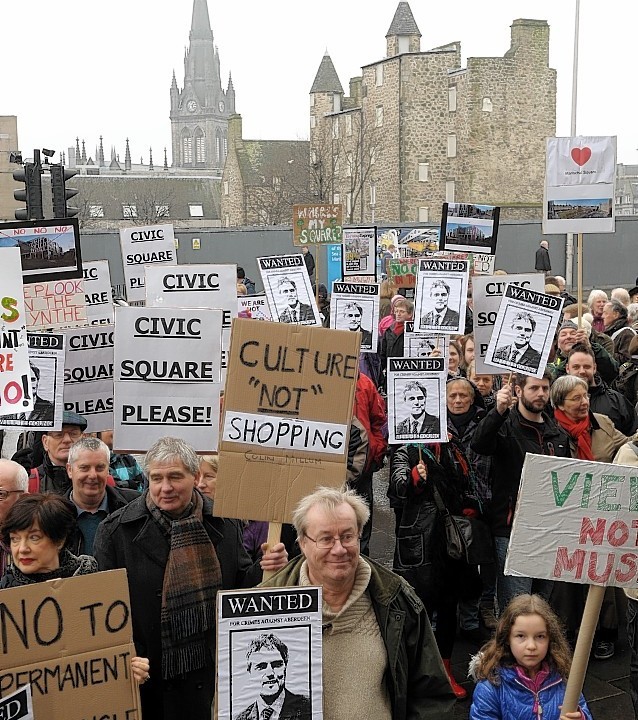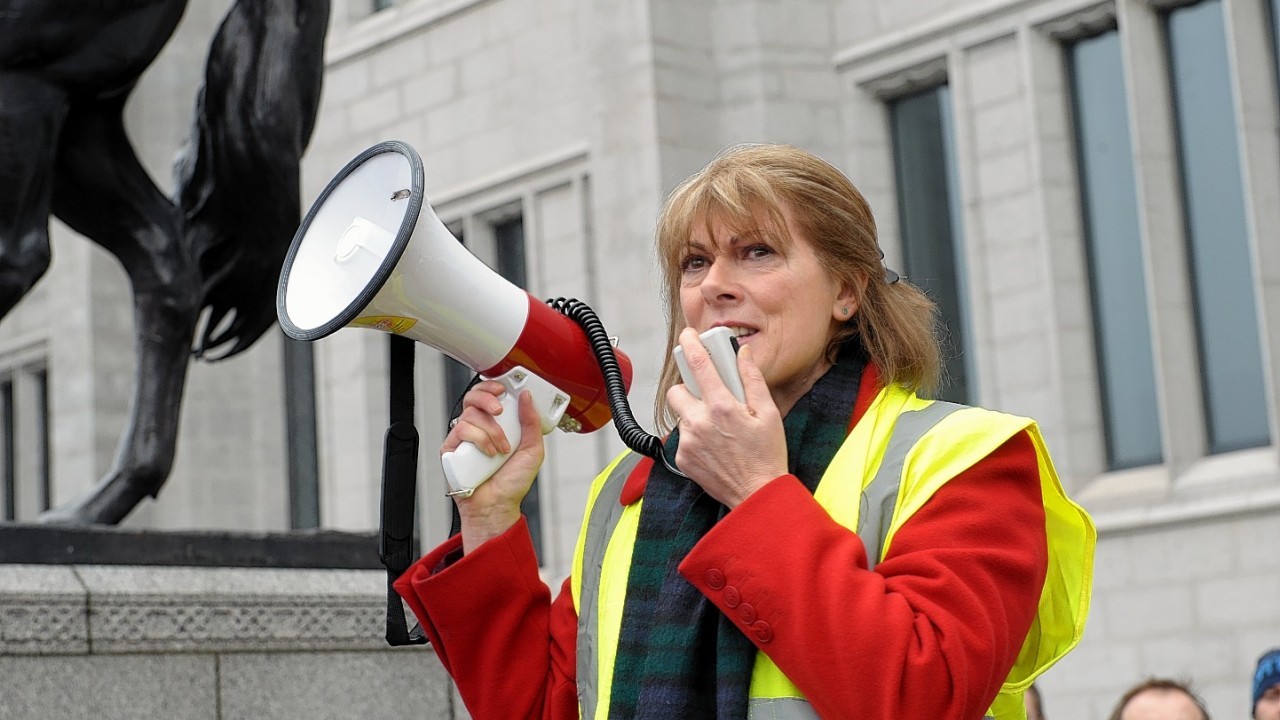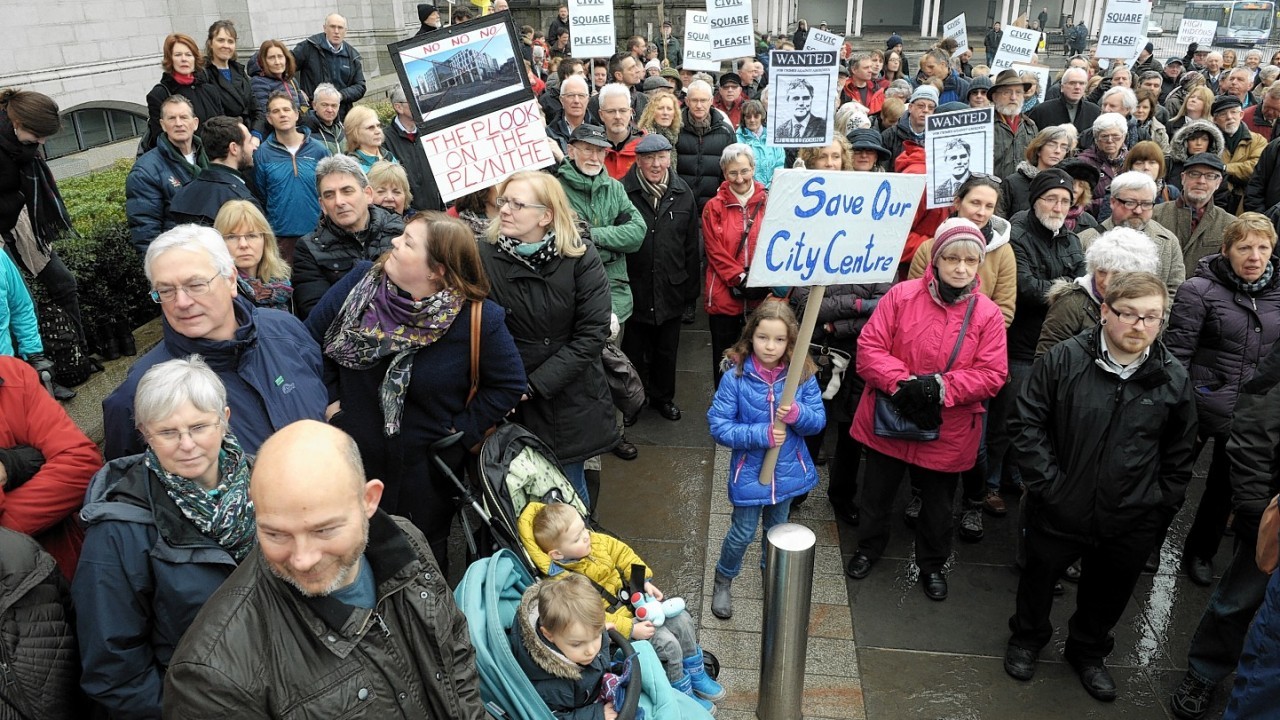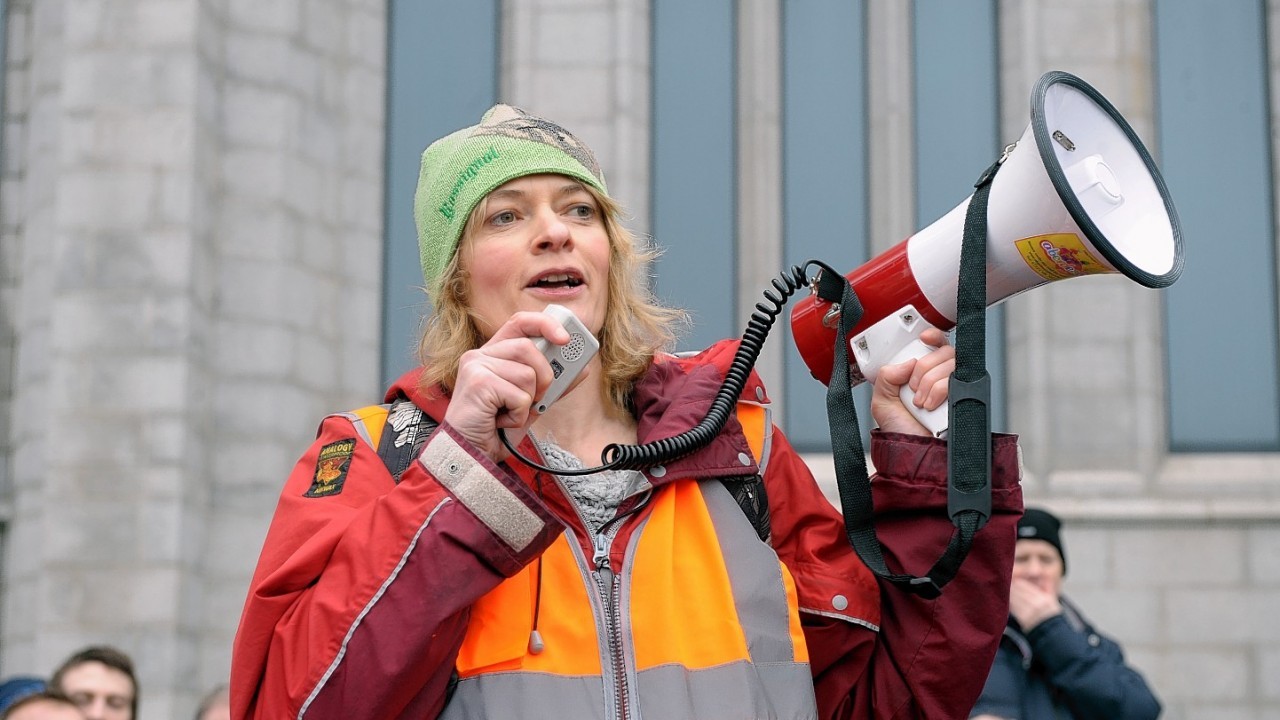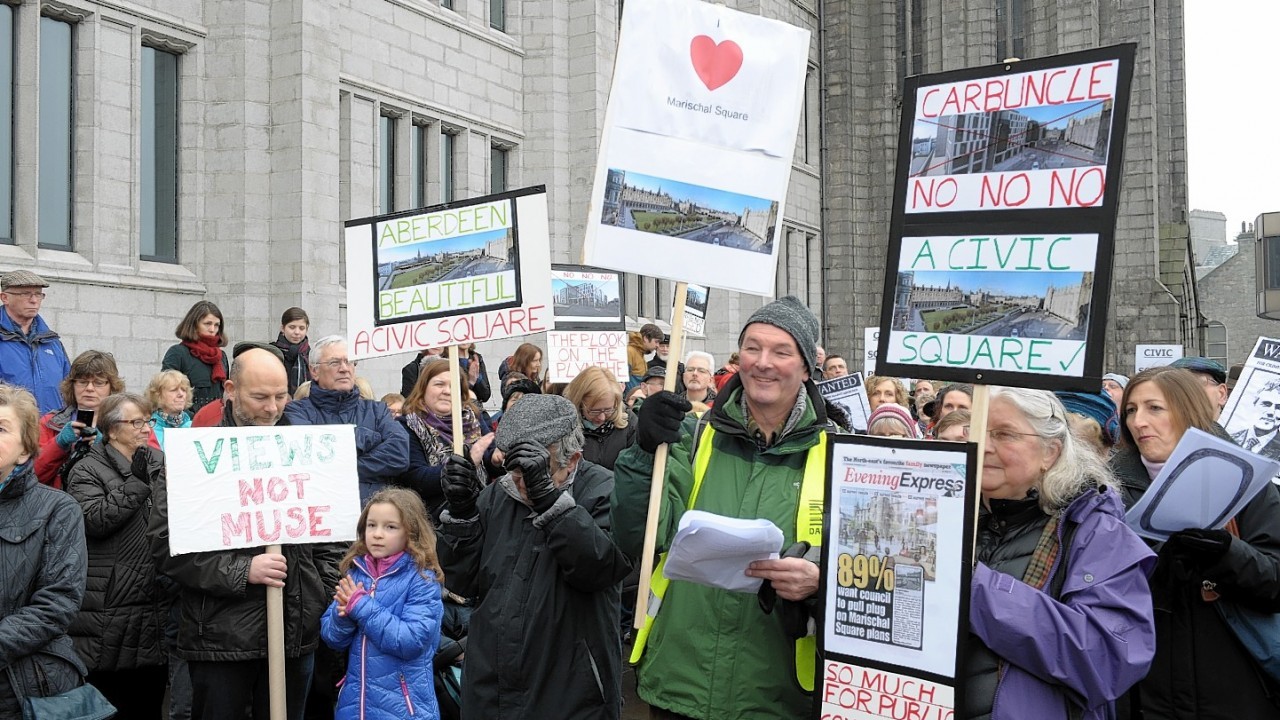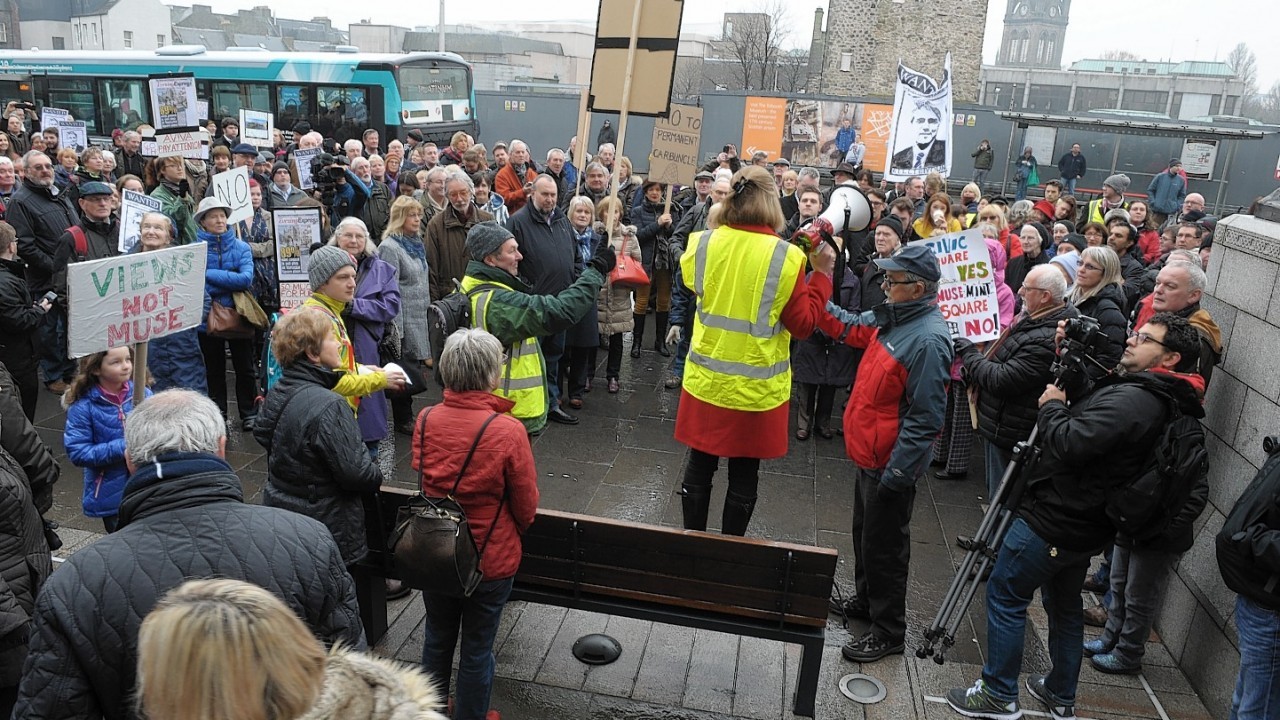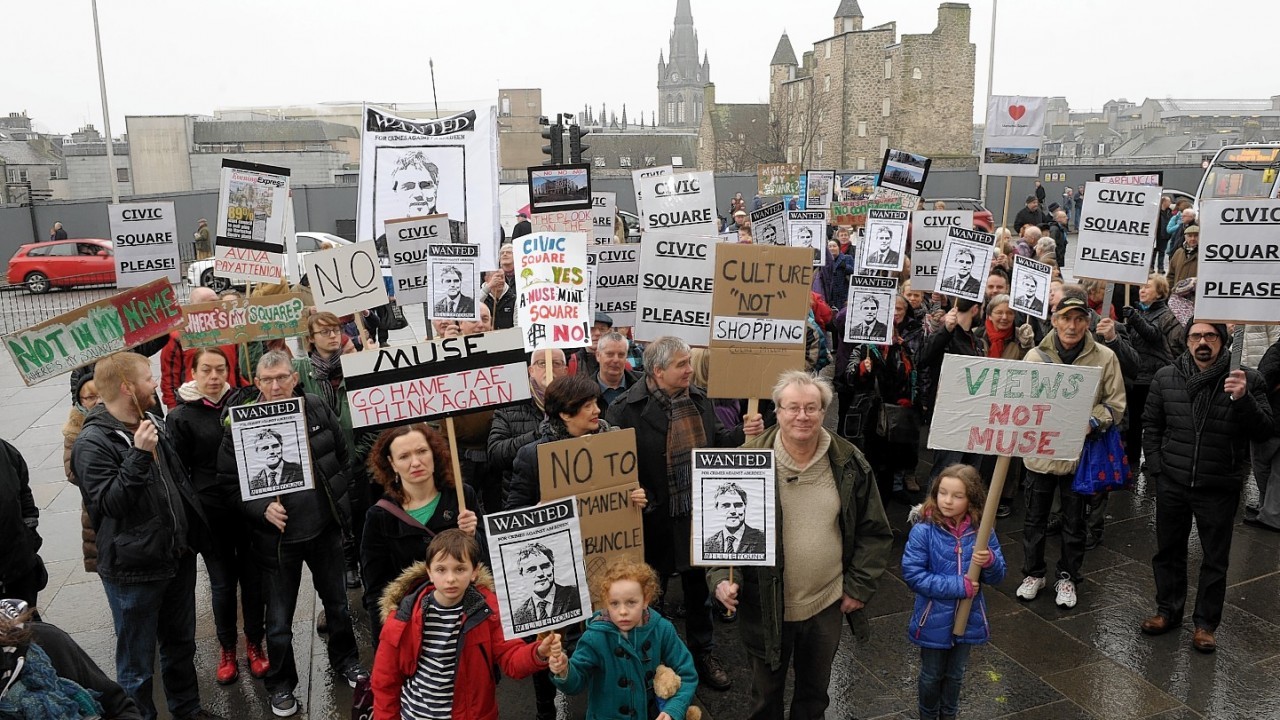The Press and Journal can today reveal a dossier provided by Aberdeen City Council in defence of the controversial Marischal Square development.
The local authority wants to answer key questions posed by campaigners opposing the £107million office, hotel and retail project in advance of a special council meeting on Thursday.
The documents confirm the local authority will “carry the risk” for the development over a 35-year period.
Deputy council leader Marie Boulton said the Labour-led administration was being as “open as possible” with the public – but insisted the plans will not be scrapped.
The opposition SNP argued the leadership “does not care about the views of the people of Aberdeen”.
In advance of a meeting on Thursday to debate the controversial Marischal Square project, Aberdeen City Council responds to a series of questions from campaigners against the scheme.
Q: The public have never been consulted on a development without pedestrianisation at Marischal Square. When will people be consulted on the final plans?
A: The first stage of public consultation by Muse included consultation on the full or partial pedestrianisation of Broad Street, as well as retaining the status quo.
The final plans were approved by the council on October 8.
Pedestrianisation of Broad Street was not considered in determining the planning application. It was made clear to council that approving the application does not stop potential future pedestrianisation.
Officers are continuing to investigate options, including appropriate traffic modelling, for creating a more user-friendly pedestrian environment to form a civic space on Broad Street in advance of the pedestrianisation of Union Street.
That work is being carried out in tandem with the development of the city centre masterplan and development framework.
Any significant changes to the design would be subject to a further planning application.
Q: Why is the civic space only 14,5000 sq ft? If traffic is to flow along Broad Street, is the civic space around Provost Skene’s House to be increased proportionally?
A: The civic space has increased since the original plans were put forward by Muse.
Muse are able to implement the current planning permission without increasing the area of civic space around Provost Skene’s House regardless of the final decision made on pedestrianisation. It should be noted that Provost Skene’s House was never historically set within a large area of open space.
Q: On what date were the pedestrianisation-planning permissions for the project separated? Did ACC tell staff not to divulge this information?
A: Work to pedestrianise Broad Street does not require planning permission if being carried out by the council in its capacity as roads authority. Thus it is not correct to say the two have been separated.
As a result, the merits of Broad Street pedestrianisation and the proposals shown for a civic space between the development site and Marischal College were not considered in assessing the planning application.
There is, however, a separate statutory procedure, including opportunities for the public and others to make representations to the council. The city centre master-plan process, which commences a third and final public engagement phase from March 18, may well offer recommendations on options for pedestrianisation in the city centre.
Q: We understand that ACC has entered into a “sale and lease back” contract with Muse, which will expose the Aberdeen taxpayer.
Please detail due diligence conducted for various levels of occupancy of the project.
A: The overall agreement is made up of a number of parts and separate contracts between the parties. This is a commercial agreement and full details are commercially sensitive.
However, the general basis of the agreement can be described.
ACC sold the site (excluding Provost Skene’s House) to Aviva in December 2014. The council has received £1million up front with the balance of £9million payable at completion in two years time.
ACC entered into a lease with Aviva for the site, and will pay a rental from the completion of the development for a 35 year period.
The council’s annual rental payment realises a capital sum to undertake the development.
Muse is obliged to build the scheme for Aviva to create a range of development space and in turn an income stream to the council.
Muse are contracted to identify and tie in a hotel operator. This is in place with the hotel element trading as a Marriot Residence Inn.
Muse are contracted to let the office, restaurant and additional space within the development on behalf of the Council.
The capital sum pays for the construction costs to build the development, the purchase price paid for the land, a profit account to be shared between the three parties, and a contingency fund to cover vacant periods and other costs. Further monies are set-aside for upgrading works to Provost Skene’s House and public realm works within and outwith the scheme.
After the five year lease period the council can choose to buy the development in its entirety for £1.
The council is liable for the annual rental and will carry the risk should the hotel and development not realise the income projected. The projected income on a fully let scheme is however significantly above the rental payment.
The full response to the campaigners’ questions is due to be published on Aberdeen City Council’s website here
http://www.aberdeencity.gov.uk/council_government/shaping_aberdeen/Marischal_Square_Development_Your_questions_answered.asp
